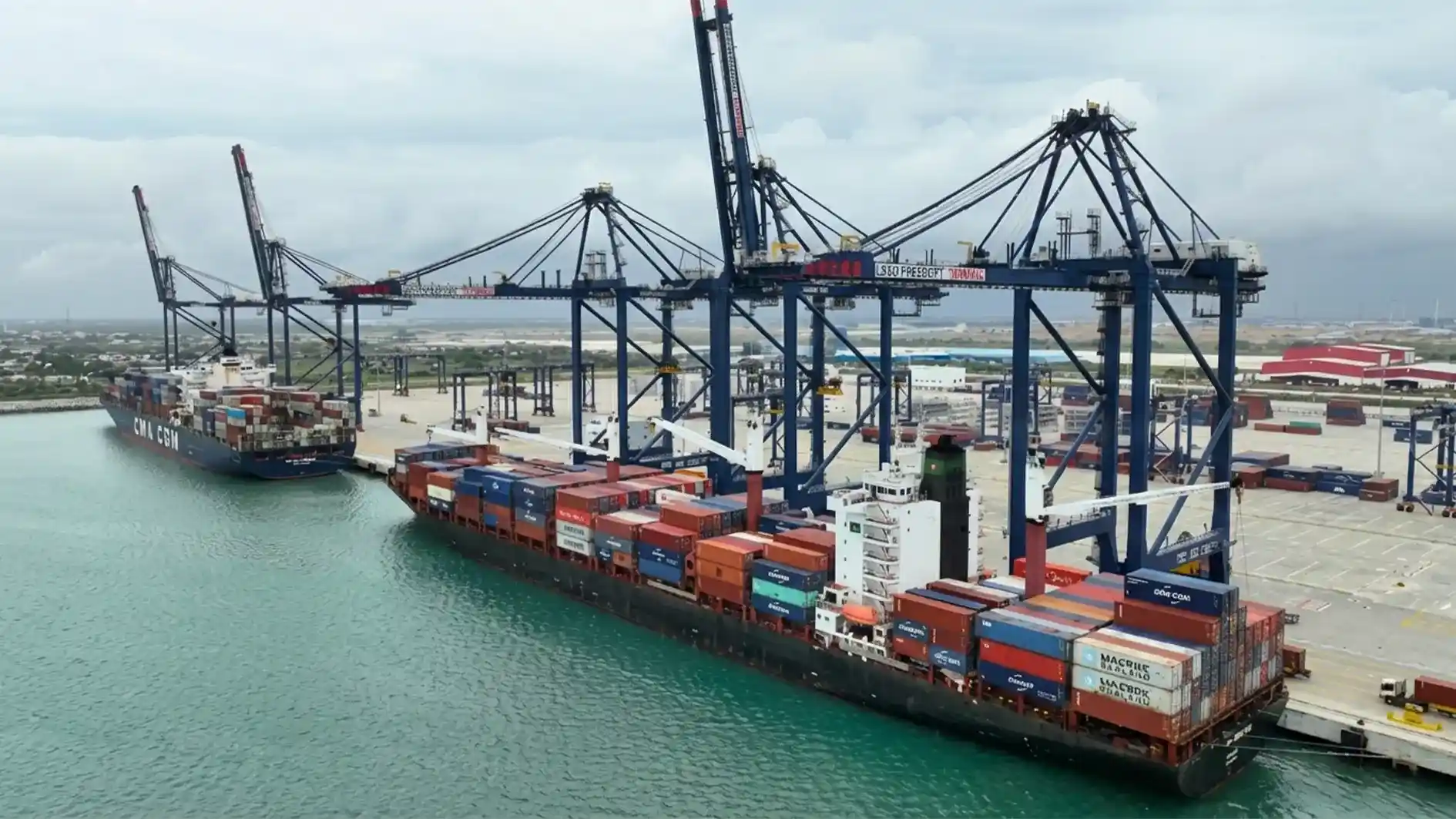In a sign of cautious optimism amid a challenging fiscal environment, ratings agency Moody’s expects South Africa’s coalition government to eventually forge a compromise that will allow the long-delayed budget to pass—albeit with some adjustments to contentious fiscal measures. The anticipated compromise comes as the Government of National Unity (GNU) grapples with internal disagreements over a proposed value-added tax (VAT) increase and other fiscal policy measures, while maintaining an overarching focus on fiscal consolidation.
In an issuer comment dated March 17, Moody’s stated, “Our baseline is for the GNU to reach a compromise, leading to an orderly approval of the budget.” Although continued friction within the coalition might lead to some changes in specific fiscal measures before parliament gives its approval, Moody’s is confident that the budget’s core objective of fiscal consolidation will remain intact. This assurance is critical for maintaining investor confidence and keeping South Africa’s public debt trajectory on track.
Background: The Budget Impasse and the Controversial VAT Hike
South Africa’s latest budget process has been marked by deep-seated disagreements within the ruling coalition. The budget was postponed last month after coalition partners clashed over a contentious proposal to raise the country’s value-added tax (VAT). VAT is a significant revenue-generating tool for the government but is also politically sensitive. In a nation where consumer spending plays a critical role in the economy, any increase in VAT risks sparking public discontent, particularly among lower- and middle-income households.
Finance Minister Enoch Godongwana has been at the center of efforts to find common ground. Last week, he presented a revised version of the budget in parliament, which scaled back the originally proposed VAT hike in an attempt to appease dissenting factions within the coalition. Despite these adjustments, most of the major parliamentary parties have publicly rejected the amended budget, indicating that much remains to be negotiated. Nonetheless, behind closed doors, negotiations are underway to break the impasse, as policymakers recognize that an overdue budget could undermine economic stability and lead to a loss of confidence among both domestic and international investors.
The Coalition Government: Navigating Internal Friction
South Africa’s coalition government, often referred to as the Government of National Unity (GNU), is a broad-based alliance composed of parties with divergent ideologies and policy priorities. While this coalition was formed with the aim of ensuring stable governance during a period of significant political transition, it has also been characterized by persistent internal friction.
The disagreements over the VAT hike are symptomatic of deeper policy differences. On one hand, some coalition partners advocate for stringent fiscal consolidation measures to stabilize public finances and curb mounting debt. On the other hand, others are concerned about the social and economic repercussions of austerity measures, arguing that any tax increase could further strain an already vulnerable population.
This balancing act—between ensuring fiscal discipline and protecting citizens from the adverse effects of higher taxes—has placed the coalition in a precarious position. As negotiations continue, the challenge will be to achieve a compromise that satisfies both the fiscal conservatives, who prioritize debt stabilization and investor confidence, and the more progressive elements, which emphasize social equity and economic inclusiveness.
Fiscal Consolidation: The Backbone of the Revised Budget
A central tenet of the revised budget is the government’s commitment to fiscal consolidation. The budget aims for public debt to peak in the fiscal year starting on April 1, a target that Moody’s predicts will remain a central component in the final version passed by parliament. Fiscal consolidation involves measures to reduce deficits and stabilize public debt, which is critical for maintaining the country’s creditworthiness in the eyes of international investors and rating agencies.
Moody’s analysis reflects an understanding that, despite potential adjustments to individual fiscal measures like the VAT increase, the overarching goal of the budget remains focused on achieving fiscal discipline. For South Africa, which has long struggled with high public debt and a challenging economic environment marked by slow growth and high unemployment, maintaining a clear path to fiscal consolidation is essential. This not only helps to control the cost of borrowing but also bolsters the country’s long-term economic prospects.
By keeping public debt on a manageable trajectory, the government aims to preserve fiscal space for future investments in critical areas such as infrastructure, education, and healthcare. In this context, the budget is not merely an annual financial statement—it is a strategic tool designed to ensure that South Africa remains on a sustainable economic path amid both domestic and global uncertainties.
Economic Implications: Investor Confidence and Market Reactions
The outcome of the budget negotiations is of paramount importance to South Africa’s broader economic outlook. The prolonged budget impasse has already raised concerns among investors, both domestic and international, about the government’s ability to implement necessary fiscal reforms in a timely manner. Delays in budget approval can lead to uncertainties regarding government spending, potentially triggering market volatility and affecting the country’s credit rating.
Moody’s outlook serves as an important signal to investors. By expressing confidence that the coalition will eventually reach a compromise—despite the ongoing debates over specific fiscal measures—Moody’s is essentially underlining the resilience of South Africa’s economic management. The agency’s expectation that the budget will ultimately maintain its focus on fiscal consolidation is crucial for reassuring markets that the government is committed to responsible fiscal policies.
Investor confidence is particularly sensitive to South Africa’s fiscal policy given the country’s history of economic challenges. Over the past decade, South Africa has faced periods of economic stagnation, political instability, and external shocks, such as fluctuations in commodity prices and global economic slowdowns. In such an environment, any sign that the government is failing to manage its finances prudently can have far-reaching consequences for investor sentiment and the cost of borrowing. Conversely, a clear commitment to fiscal consolidation can help to mitigate these risks and pave the way for improved economic stability.
Political Reactions: Voices from the Parliamentary Debate
The revised budget, which scaled back the proposed VAT increase, has generated a range of reactions from various political quarters. While Finance Minister Godongwana’s efforts to revise the budget were aimed at finding a middle ground, many parliamentary parties have publicly expressed their dissatisfaction with the amended proposals. This public rejection underscores the depth of the divisions within the coalition, with each party advocating for different priorities.
Opponents of the revised budget argue that even the reduced VAT hike could dampen consumer spending and exacerbate economic inequality, particularly among lower-income groups. Critics point out that increasing indirect taxes in an already inflationary environment might reduce household purchasing power and negatively impact small businesses, which are the backbone of the South African economy.
On the other hand, proponents of fiscal consolidation within the coalition stress the importance of controlling public debt and ensuring that fiscal policies are sustainable in the long term. They argue that a disciplined approach to budgeting is necessary to safeguard the country’s economic future and prevent further deterioration of its credit ratings. The challenge, therefore, lies in reconciling these conflicting perspectives and crafting a budget that is both fiscally responsible and socially sensitive.
Amid this heated debate, there are also calls for greater transparency and inclusivity in the budget-making process. Some political commentators have suggested that a more consultative approach, involving broader stakeholder engagement—including representatives from the business community, civil society, and labor unions—could help to build consensus and facilitate a more balanced fiscal policy.
The Role of Moody’s: Analysis and Historical Context
Moody’s, one of the world’s leading credit rating agencies, plays a pivotal role in assessing the creditworthiness of sovereign nations. The agency’s expectations regarding South Africa’s budget are not made in isolation—they are part of a broader analysis of the country’s fiscal trajectory, economic fundamentals, and political stability.
Historically, South Africa’s credit ratings have been influenced by its fiscal policies and economic performance. In recent years, concerns over high levels of public debt, persistent budget deficits, and structural challenges in the economy have led to a cautious outlook from rating agencies. For instance, past budget impasses and delays in fiscal reforms have, at times, resulted in downgrades that increased borrowing costs and put additional pressure on the government to implement corrective measures.
In its latest comment, Moody’s acknowledges that while there is ongoing friction within the coalition, the agency expects that the budget’s overall focus on fiscal consolidation will prevail. This expectation is significant because it suggests that, despite the political wrangling, the fundamental objectives of the budget remain clear. By peaking public debt in the fiscal year starting April 1 and maintaining a disciplined fiscal stance, the government can work to restore investor confidence and improve its credit rating over the long term.
Moody’s analysis also reflects an understanding of the delicate balance that the government must strike between fiscal discipline and economic stimulus. In an economy that faces significant social and economic challenges—such as high unemployment, slow growth, and inequality—the need for fiscal consolidation must be weighed against the imperative to support economic recovery and protect vulnerable segments of society.
Broader Economic Context: Domestic and Global Challenges
South Africa’s fiscal policy decisions are made in a complex environment shaped by both domestic challenges and global economic trends. Domestically, the country continues to grapple with issues such as sluggish economic growth, high unemployment, and a persistent skills gap in the labor market. These challenges are compounded by social disparities and the need for significant investments in public services like education, healthcare, and infrastructure.
On the global front, South Africa is not immune to the broader economic headwinds that have affected emerging markets worldwide. Fluctuations in commodity prices, currency volatility, and uncertainties in global trade can all impact the country’s economic performance. Moreover, international investors are increasingly scrutinizing fiscal policies and political stability when making investment decisions. In this context, the timely approval of a sound budget becomes even more critical for maintaining the country’s economic credibility.
The need for fiscal consolidation is, therefore, not just a matter of balancing the books—it is a strategic imperative that will determine South Africa’s ability to attract investment, lower borrowing costs, and stimulate sustainable economic growth. By addressing these challenges head-on, the government can lay the groundwork for a more resilient economy that is better equipped to navigate both domestic and global uncertainties.
Potential Scenarios: Navigating the Budget Impasse
As negotiations continue within the coalition, several scenarios could unfold:
Best-Case Scenario: Orderly Approval with Minimal Adjustments
In the best-case scenario, coalition leaders will overcome their differences and reach a compromise that allows parliament to approve the budget promptly. In this outcome, the revised fiscal measures—while possibly subject to some modifications—will maintain their focus on fiscal consolidation, ensuring that public debt peaks as planned. This orderly approval would help restore investor confidence and signal a commitment to sound fiscal management, potentially averting any negative impact on South Africa’s credit rating.
Worst-Case Scenario: Prolonged Impasse and Further Delays
In the worst-case scenario, the internal friction within the coalition could lead to prolonged delays in budget approval. Extended uncertainty over fiscal policies might undermine investor confidence and prompt rating agencies like Moody’s to reassess South Africa’s creditworthiness. A protracted impasse could also disrupt government spending, delay critical economic reforms, and increase the risk of market volatility. Such an outcome would place additional pressure on the government to implement corrective measures and could result in higher borrowing costs in the future.
Likely Middle Ground: Incremental Adjustments and Compromise
The most likely scenario appears to be a middle ground, where coalition members agree to incremental adjustments to the fiscal measures, including the contentious VAT proposal, in exchange for maintaining the overall focus on fiscal consolidation. This compromise would reflect the political reality of diverse policy priorities within the coalition while preserving the essential framework needed to stabilize public debt. In this scenario, the government’s commitment to fiscal discipline would be upheld, albeit with some flexibility in specific measures to accommodate social and economic concerns.
The Road Ahead: Implications for South Africa’s Economic Future
The outcome of these budget negotiations will have far-reaching implications for South Africa’s economic trajectory. Successfully resolving the impasse and passing a budget that balances fiscal consolidation with necessary economic stimulus will be critical for the country’s long-term stability. It will also serve as a litmus test for the coalition government’s ability to govern effectively in a challenging political environment.
For international investors and rating agencies, the successful passage of the budget would reinforce confidence in South Africa’s commitment to responsible fiscal management. This, in turn, could lead to improved credit ratings, lower borrowing costs, and increased investment in key sectors of the economy. Conversely, failure to reach a timely compromise could exacerbate existing economic challenges and erode investor confidence at a time when the country needs stability the most.
Conclusion: Balancing Fiscal Discipline and Economic Resilience
As South Africa stands at a critical juncture in its fiscal journey, the negotiations over the budget underscore the inherent challenges of balancing fiscal discipline with the need to promote economic growth and social equity. Moody’s expectation that the coalition will eventually reach a compromise reflects a cautious optimism that, despite political disagreements, the fundamental goal of fiscal consolidation will prevail.
The coming weeks will be pivotal in determining whether South Africa can navigate its budget impasse without compromising its long-term economic objectives. With investor confidence hanging in the balance and the government under pressure to meet both domestic and international expectations, the resolution of these negotiations will be a key indicator of the country’s ability to steer its economy through turbulent times.
In a complex economic landscape marked by internal political divisions and global uncertainties, the successful passage of the budget could signal a renewed commitment to stability and responsible governance. For South Africa, maintaining the delicate balance between fiscal consolidation and economic stimulus is not just a matter of financial management—it is essential for building a resilient, inclusive, and sustainable economy that can weather future challenges.
Ultimately, the path chosen by South Africa’s coalition government will have a lasting impact on the nation’s economic health, investor confidence, and its standing in the global financial community. As stakeholders from all sides await the final decision, the hope is that a compromise will be reached that honors both the need for fiscal prudence and the imperative to support economic growth and social development.
Ready to take your career to the next level? Join our dynamic courses: ACCA, HESI A2, ATI TEAS 7 , HESI EXIT , NCLEX – RN and NCLEX – PN, Financial Literacy!🌟 Dive into a world of opportunities and empower yourself for success. Explore more at Serrari Ed and start your exciting journey today! ✨
photo source: Google
By: Montel Kamau
Serrari Financial Analyst
19th March, 2025
Article, Financial and News Disclaimer
The Value of a Financial Advisor
While this article offers valuable insights, it is essential to recognize that personal finance can be highly complex and unique to each individual. A financial advisor provides professional expertise and personalized guidance to help you make well-informed decisions tailored to your specific circumstances and goals.
Beyond offering knowledge, a financial advisor serves as a trusted partner to help you stay disciplined, avoid common pitfalls, and remain focused on your long-term objectives. Their perspective and experience can complement your own efforts, enhancing your financial well-being and ensuring a more confident approach to managing your finances.
Disclaimer: This article is for informational purposes only and does not constitute financial advice. Readers are encouraged to consult a licensed financial advisor to obtain guidance specific to their financial situation.
Article and News Disclaimer
The information provided on www.serrarigroup.com is for general informational purposes only. While we strive to keep the information up to date and accurate, we make no representations or warranties of any kind, express or implied, about the completeness, accuracy, reliability, suitability, or availability with respect to the website or the information, products, services, or related graphics contained on the website for any purpose. Any reliance you place on such information is therefore strictly at your own risk.
www.serrarigroup.com is not responsible for any errors or omissions, or for the results obtained from the use of this information. All information on the website is provided on an as-is basis, with no guarantee of completeness, accuracy, timeliness, or of the results obtained from the use of this information, and without warranty of any kind, express or implied, including but not limited to warranties of performance, merchantability, and fitness for a particular purpose.
In no event will www.serrarigroup.com be liable to you or anyone else for any decision made or action taken in reliance on the information provided on the website or for any consequential, special, or similar damages, even if advised of the possibility of such damages.
The articles, news, and information presented on www.serrarigroup.com reflect the opinions of the respective authors and contributors and do not necessarily represent the views of the website or its management. Any views or opinions expressed are solely those of the individual authors and do not represent the website's views or opinions as a whole.
The content on www.serrarigroup.com may include links to external websites, which are provided for convenience and informational purposes only. We have no control over the nature, content, and availability of those sites. The inclusion of any links does not necessarily imply a recommendation or endorsement of the views expressed within them.
Every effort is made to keep the website up and running smoothly. However, www.serrarigroup.com takes no responsibility for, and will not be liable for, the website being temporarily unavailable due to technical issues beyond our control.
Please note that laws, regulations, and information can change rapidly, and we advise you to conduct further research and seek professional advice when necessary.
By using www.serrarigroup.com, you agree to this disclaimer and its terms. If you do not agree with this disclaimer, please do not use the website.
www.serrarigroup.com, reserves the right to update, modify, or remove any part of this disclaimer without prior notice. It is your responsibility to review this disclaimer periodically for changes.
Serrari Group 2025
















